How will we solve cancer's biggest challenges?
Professor Caroline Dive explains how philanthropic partnerships are making long-term leaps forward in cancer research possible
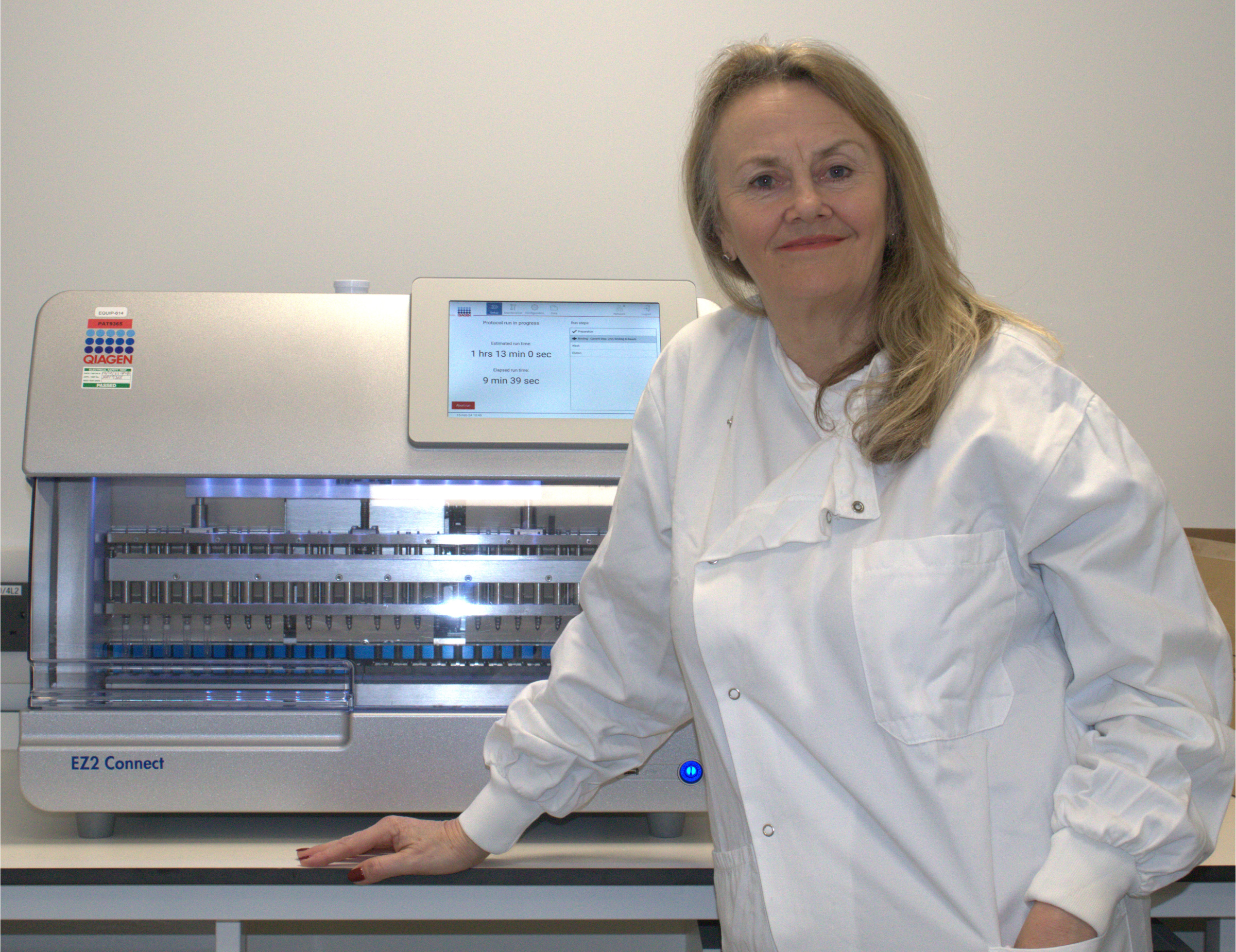
Cancer will affect us all during our lifetimes, whether through our own diagnoses or those of loved ones. It's a fact Professor Caroline Dive, director of the CRUK National Biomarker Centre, knows all too well.
"Nearly one in two of us will get cancer in our lifetimes. Walking through the Christie Hospital in Manchester, the largest cancer hospital in Europe, I'm surrounded by the reasons why I do what I do," she says. And given Dive’s family history, it’s clear to see where her tireless motivation comes from.
Dive's grandfather died from brain cancer before she was born. Her mother has undergone surgery on an endometrial tumour, and her father was treated for colon cancer. He passed away last year at 95 years-old, following a further diagnosis of cancer.
It was her father that inspired Dive to pursue a career in science. A degree in pharmacy led on to PhD studies in Cambridge, and her career has taken a number of twists and turns since. But one constant has been the support of Cancer Research UK and its philanthropic partners, which have funded her work for more than 35 years.
Dive has witnessed the radical transformation of cancer care, from the phasing out of the first chemotherapeutic drugs – nitrogen mustards, which were originally developed for chemical warfare during World War Two – through to the development of cutting-edge targeted treatments like immunotherapies. More recently, she's been drawn to biomarkers.
"Biomarker is one word, but it covers a plethora of different sorts of tests that enable clinicians to manage a patient's individual cancer in the best way possible," she explains. These tests could indicate a person's risk of getting cancer, detect early signs of the disease, or show the aggressiveness of a cancer.
The impact biomarkers will have on patients' care can't be underestimated. Doctors will be able to get more information, faster, to determine the best treatment plan for each individual.
And it will stop some patients from undergoing unnecessary interventions or treatments that could cause pain or discomfort.
"We have to learn how to manage cancer. And that will mean we can give patients longer with their loved ones, and a good quality of life."
"We are working on a test that predicts who is going to respond to immunotherapy, for example," Dive explains. "Immunotherapy can work really, really well in some patients, but not all. The last thing you want is to give immunotherapy to a patient where it has no chance of working, but where it might cause some rather unpleasant side effects and be quite toxic."
These revolutionary tests mark a crucial step in making personalised medicine a reality, thanks to Cancer Research UK's ongoing commitment to transforming the outlook for people affected by the disease. "We have to learn how to manage cancer. And that will mean we can give patients longer with their loved ones, and a good quality of life," says Dive.
More than 100 people are working on pioneering research at the CRUK National Biomarker Centre, playing an integral part in a global network of outstanding scientific research. "Biomarker research is undergoing quite a revolution right now and we're cautiously optimistic that for example, new blood tests, called liquid biopsies, that are readily repeatable, could make a huge impact in improving patient care. But there's still an enormous amount of work to be done to make sure these blood tests are good enough for routine use in the clinic. For sure it's a hugely exciting time to be a cancer researcher," she says.
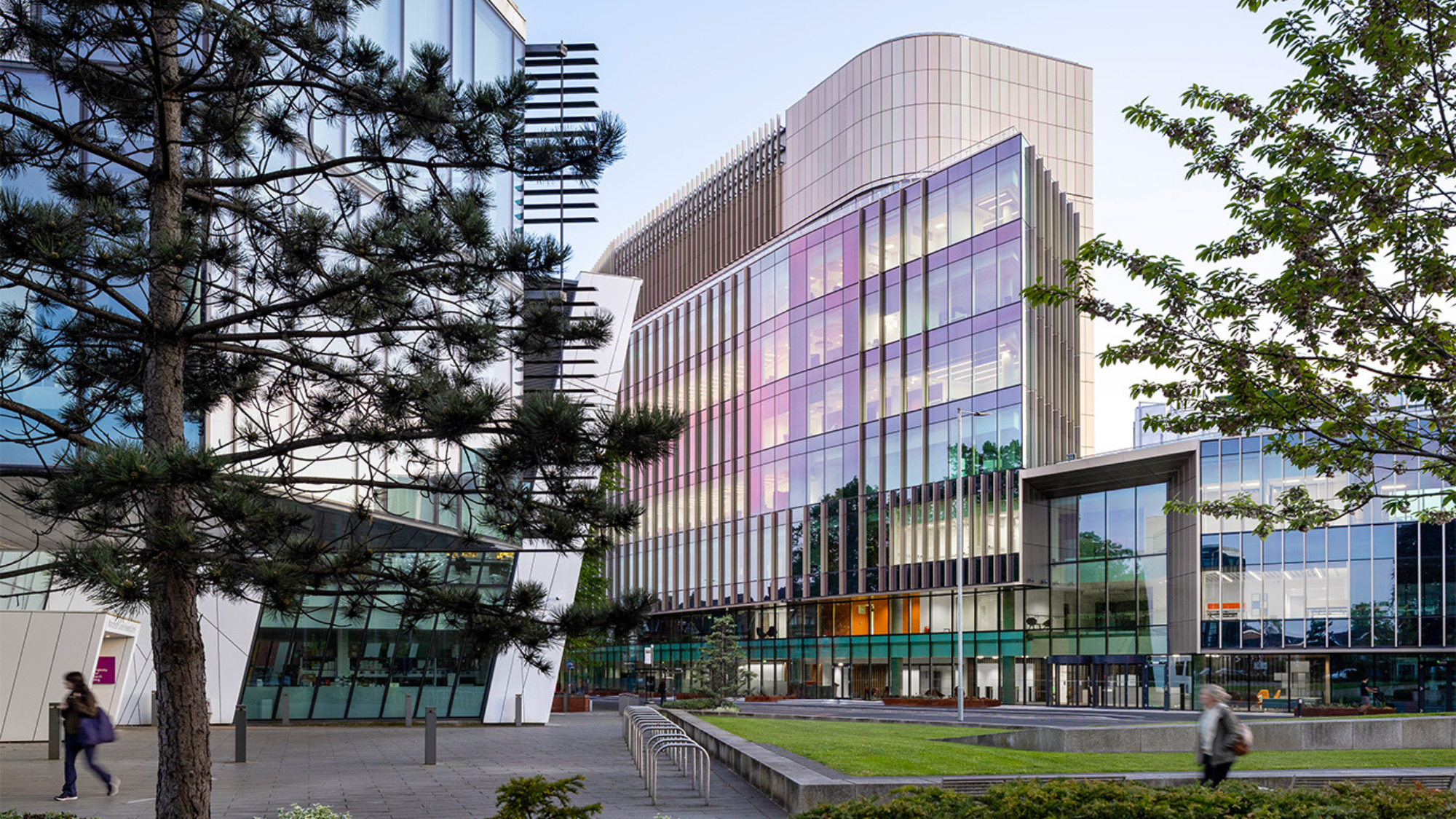
But scientists can't find the answers to cancer's biggest challenges alone. It's only by partnering with philanthropists that progress can continue to be made. Together, donors and researchers are writing the next chapters in our cancer journey. And there's still time to be part of the story. Cancer Research UK is the world's biggest charitable funder of cancer research and is uniquely positioned to turn investment into impact. In the 1970s, just one in four people in the UK survived their cancer for 10 years or more. Now, twice as many survive, an astounding feat. "But we need to do more," says Dive. "We need to transform the outlook for all people affected by cancer. And to get there, we need more support."
Through its "More Research, Less Cancer" philanthropy campaign, Cancer Research UK aims to work with philanthropists to raise £400 million to invest in four priority areas. The focus will be on the Francis Crick Institute, funding the global initiative Cancer Grand Challenges, supporting scientists at every stage of their careers and enabling more innovation that translates into effective therapies and diagnostics for patients.
"We need to transform the outlook for all people affected by cancer. And to get there, we need more support."
The campaign will make previously dreamed-of leaps forward in understanding, managing and overcoming cancer a reality. Such developments rely on widespread and lengthy experiments, Dive explains. "You have to go big. If you don't go big, you don't get the answer. And to go big, you need a lot of money. We're trying to build a pipeline of experiments which expands as we get more and more confident, so that we can get the absolute rock-solid answer. Unfortunately, there aren't any shortcuts."
Science is moving faster than ever, and new technologies are revealing previously unknown paths to further discoveries. Dive's days are packed with meetings as she oversees all the various projects, research and partnerships taking place at the CRUK National Biomarker Centre. The work, it seems, is never ending – and so is Dive's dedication and passion. "It's busy, and it's challenging. But I love what I do and it's a wonderful career," she says. "If someone asked what I would love to be doing right now, I'd say I would love to be a PhD student, starting again, in this golden age of cancer research. The next generation of cancer researchers – students, clinical fellows, young postdocs– these are the future."
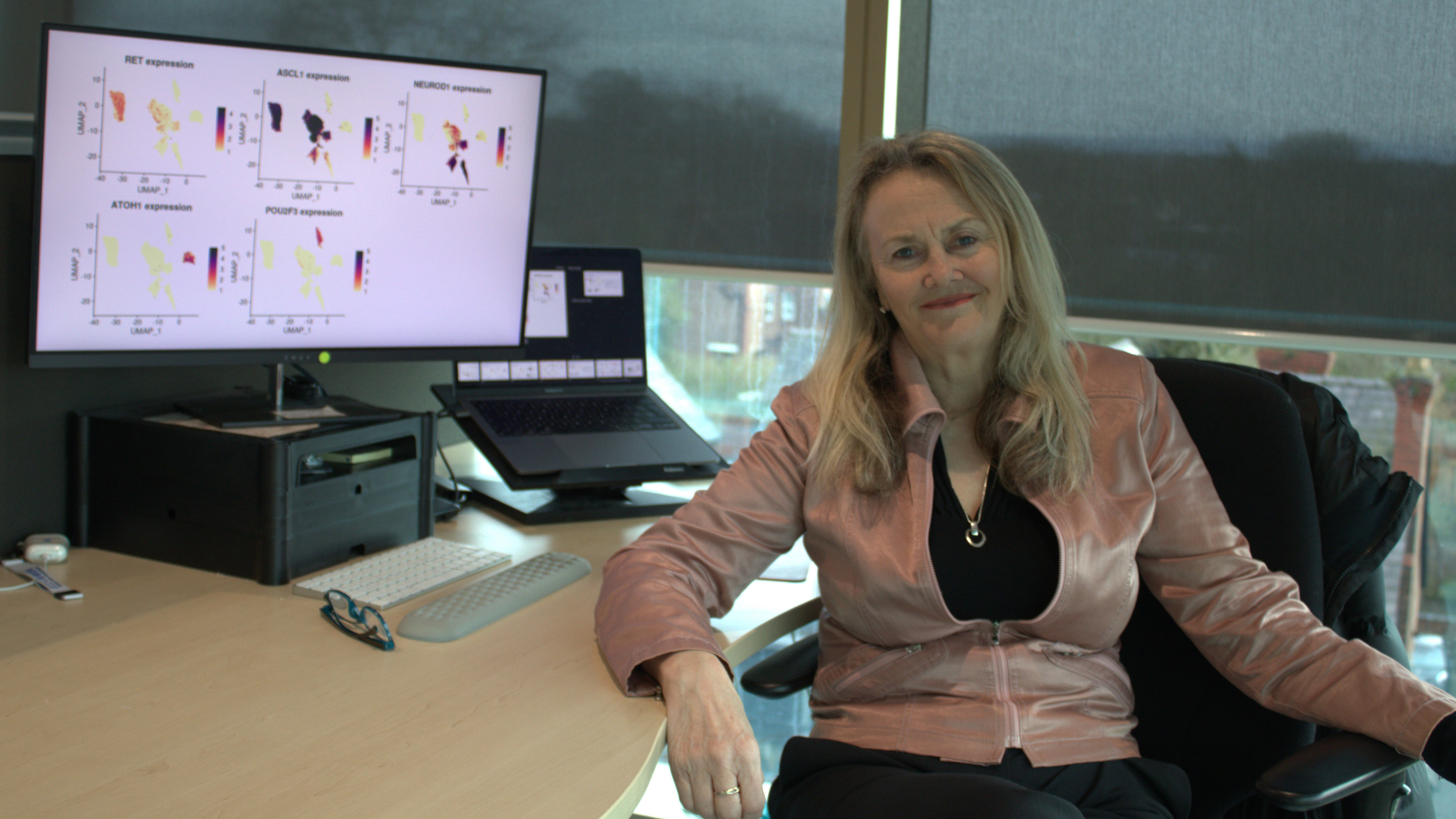
Further research is urgently needed to help this next generation of scientists keep pace with the challenges that cancer poses. The world's population is not only growing rapidly, but people are living longer too – so while some 18.7 million people around the world receive a cancer diagnosis every year at present, that number is expected to rise to at least 27 million by 2040, according to the International Agency for Research on Cancer (IARC). Undeterred by the scale of this global crisis, researchers and leaders like Dive around the world are on the brink of breakthroughs that could give every patient a better outcome.
"Philanthropists, trusts and foundations have a real opportunity to make a difference, and we can demonstrate that impact," she says. By supporting the "More Research, Less Cancer" campaign, donors will accelerate breakthroughs and give scientists the tools they need to shape patients' lives for the better, for longer.
Together, scientists and philanthropists are building a life-changing legacy that will change the lives of patients for generations to come. The future course of our battle against cancer is truly in their hands. "Without Cancer Research UK, where would we be?" asks Dive.
More research today will mean less cancer tomorrow. Visit cruk.org/more-research-less-cancer.
A free daily email with the biggest news stories of the day – and the best features from TheWeek.com
-
 Minnesota's legal system buckles under Trump's ICE surge
Minnesota's legal system buckles under Trump's ICE surgeIN THE SPOTLIGHT Mass arrests and chaotic administration have pushed Twin Cities courts to the brink as lawyers and judges alike struggle to keep pace with ICE’s activity
-
 Big-time money squabbles: the conflict over California’s proposed billionaire tax
Big-time money squabbles: the conflict over California’s proposed billionaire taxTalking Points Californians worth more than $1.1 billion would pay a one-time 5% tax
-
 ‘The West needs people’
‘The West needs people’Instant Opinion Opinion, comment and editorials of the day
-
 The truth about vitamin supplements
The truth about vitamin supplementsThe Explainer UK industry worth £559 million but scientific evidence of health benefits is ‘complicated’
-
 Covid-19 mRNA vaccines could help fight cancer
Covid-19 mRNA vaccines could help fight cancerUnder the radar They boost the immune system
-
 Deadly fungus tied to a pharaoh's tomb may help fight cancer
Deadly fungus tied to a pharaoh's tomb may help fight cancerUnder the radar A once fearsome curse could be a blessing
-
 'Poo pills' and the war on superbugs
'Poo pills' and the war on superbugsThe Explainer Antimicrobial resistance is causing millions of deaths. Could a faeces-filled pill change all that?
-
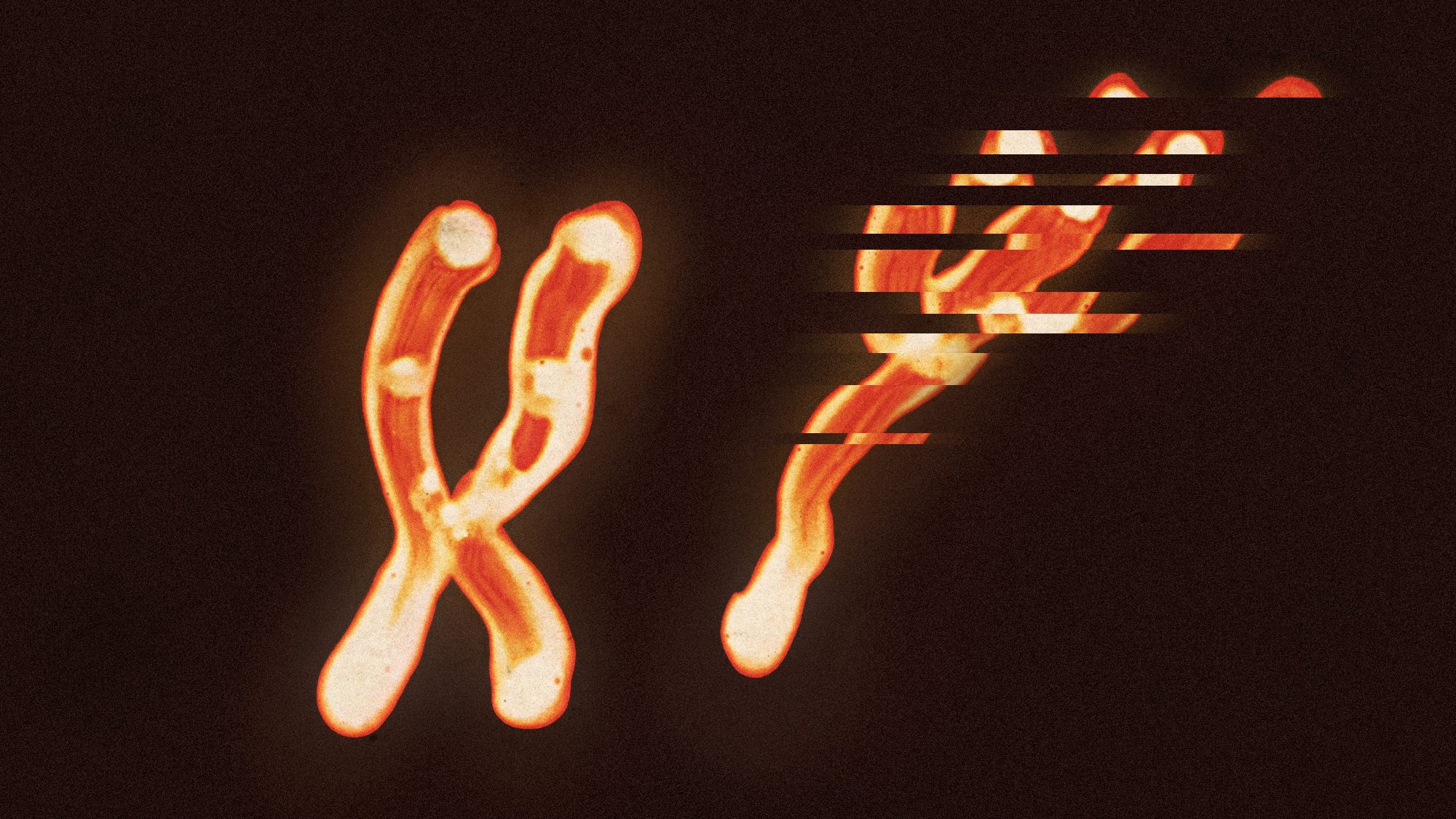 The Y chromosome degrades over time. And men's health is paying for it
The Y chromosome degrades over time. And men's health is paying for itUnder the radar The chromosome loss is linked to cancer and Alzheimer's
-
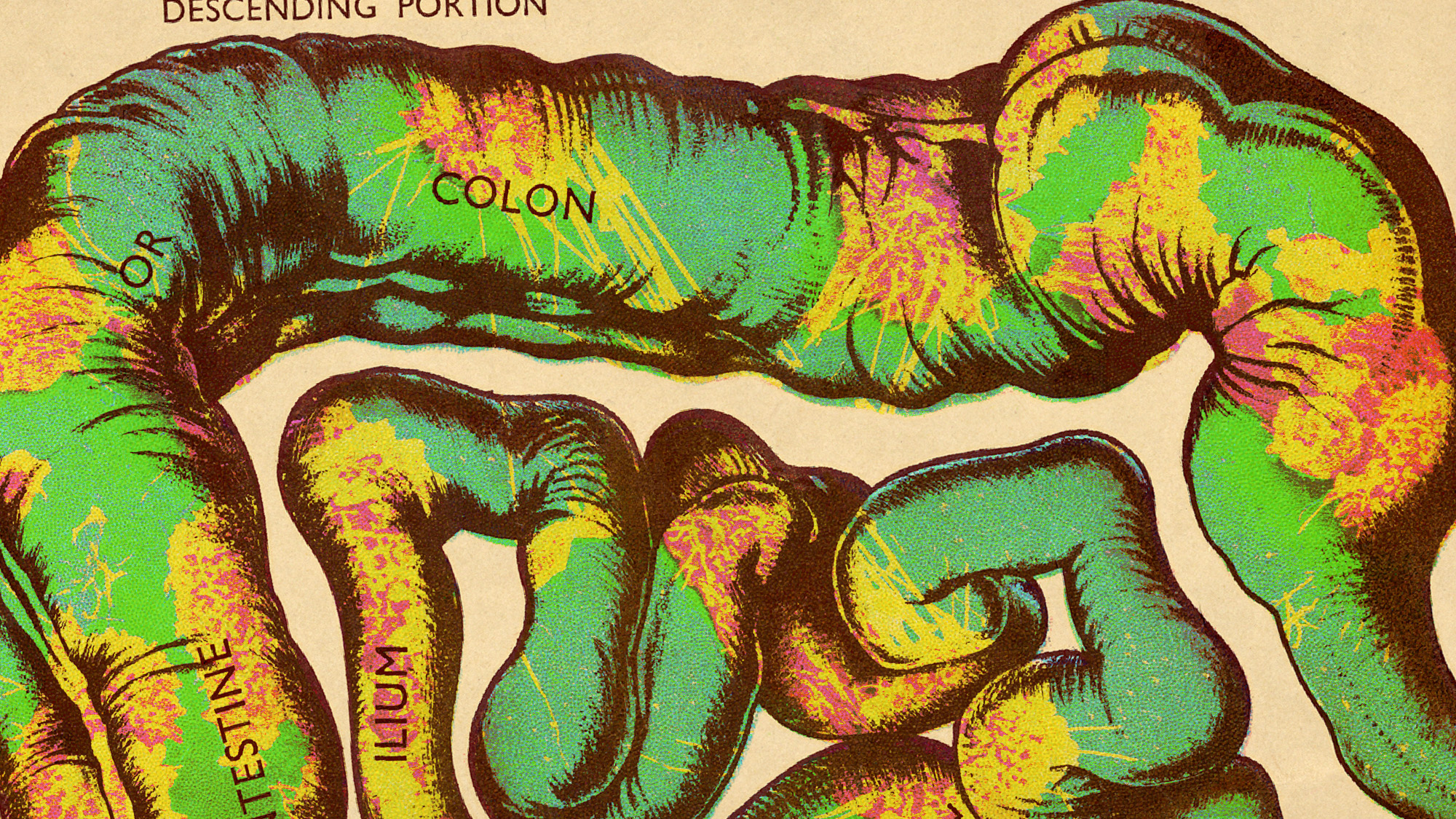 A bacterial toxin could be contributing to the colorectal cancer rise in young people
A bacterial toxin could be contributing to the colorectal cancer rise in young peopleUnder the radar Most exposure occurs in childhood
-
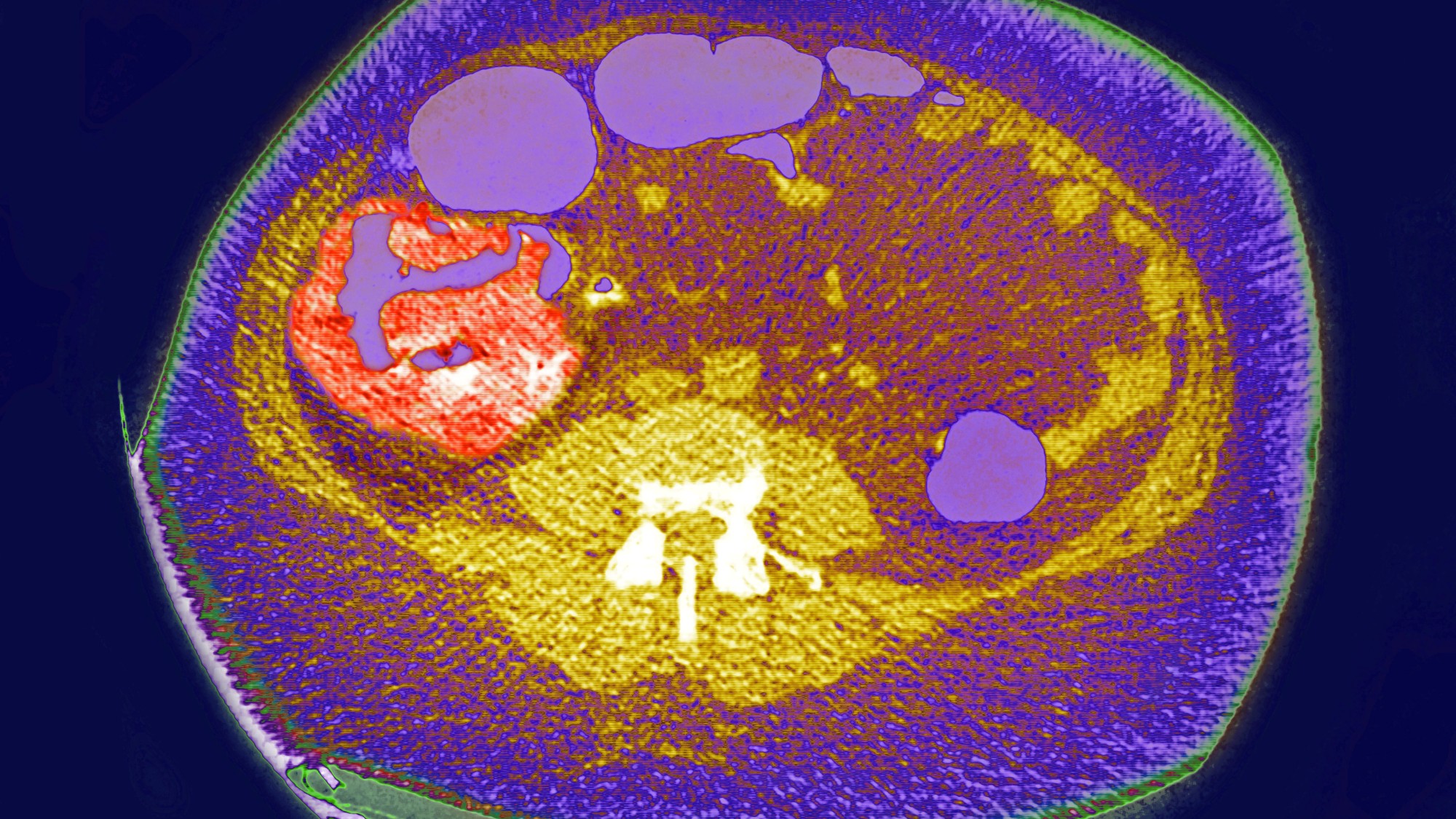 Why are more young people getting bowel cancer?
Why are more young people getting bowel cancer?The Explainer Alarming rise in bowel-cancer diagnoses in under-50s is puzzling scientists
-
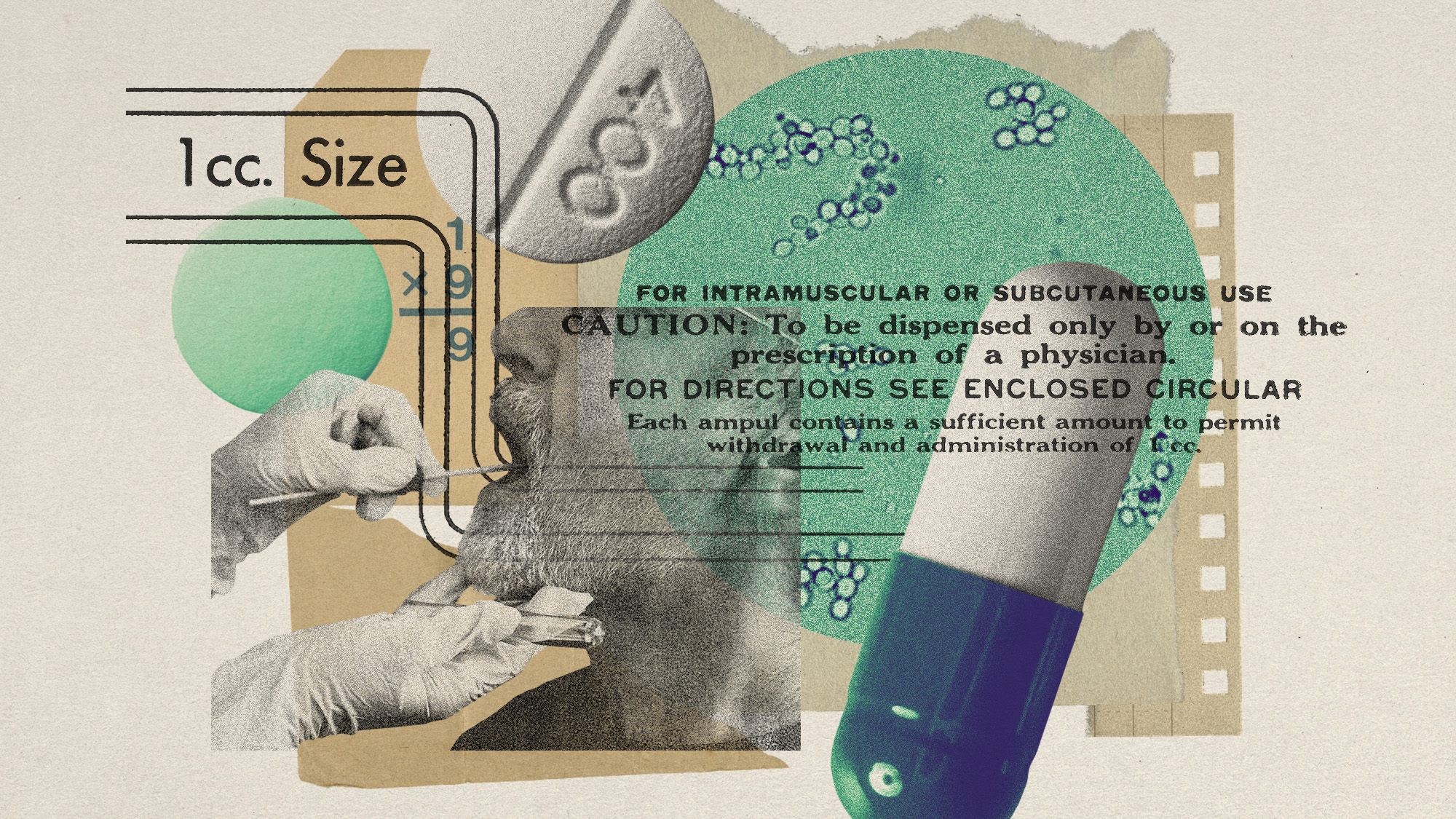 Five medical breakthroughs of 2024
Five medical breakthroughs of 2024The Explainer The year's new discoveries for health conditions that affect millions
